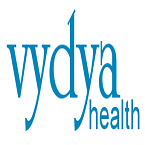-
Nursing Care: Nursing care encompasses a broad range of services provided by nurses to support patient health and well-being. This includes administering medications, monitoring vital signs, and providing wound care. Nurses also play a critical role in patient education, helping individuals understand their conditions and treatments. Emotional support and compassionate care are integral aspects, ensuring patients feel valued and understood. Nurses collaborate with other healthcare professionals to develop and implement care plans tailored to individual patient needs. They are essential in promoting health, preventing illness, and assisting in the management of chronic diseases, ultimately enhancing patient outcomes and quality of life.
-
Critical Care and Emergency Nursing: Critical care and emergency nursing involve providing specialized care to patients experiencing life-threatening conditions. Nurses in these fields are trained to respond swiftly and effectively to emergencies, administering advanced medical interventions, monitoring critical vital signs, and using specialized equipment. They work in high-pressure environments such as intensive care units (ICUs) and emergency departments (EDs), collaborating closely with multidisciplinary teams. Critical care and emergency nurses also play a vital role in patient and family education, preparing them for ongoing care and recovery. Their expertise and quick decision-making skills are crucial in stabilizing patients and improving survival and recovery outcomes.
-
Healthcare in Nursing: Healthcare in nursing involves delivering comprehensive patient care that spans preventive, curative, and rehabilitative services. Nurses are integral to the healthcare system, providing bedside care, administering treatments, and monitoring patient progress. They serve as patient advocates, educators, and care coordinators, ensuring that patients receive holistic care tailored to their needs. Nurses also contribute to healthcare policy, quality improvement, and patient safety initiatives. Their role extends beyond hospitals to community settings, home care, and clinics, where they promote health, prevent illness, and manage chronic conditions, ultimately enhancing patient outcomes and the overall efficiency of the healthcare system.
-
Nursing Care Management: Nursing care management involves coordinating and overseeing patient care to ensure optimal health outcomes. It includes developing individualized care plans, managing chronic conditions, and facilitating communication among healthcare providers. Nurses in this role assess patient needs, monitor progress, and adjust care plans as necessary. They also educate patients and families about managing health conditions and navigating the healthcare system. By integrating clinical expertise with organizational skills, nursing care managers enhance the efficiency and effectiveness of care delivery. Their focus on comprehensive, patient-centered care helps improve quality of life, reduce hospital readmissions, and optimize resource utilization within healthcare settings.
-
Nursing practice and research: Nursing practice and research are foundational to advancing healthcare. Nursing practice involves the application of clinical skills and knowledge to provide high-quality patient care across various settings. It encompasses direct patient care, health education, and advocacy. Nursing research, on the other hand, focuses on generating evidence to improve patient outcomes and healthcare practices. It involves systematic investigations to develop new nursing knowledge, validate existing practices, and explore innovative approaches to care. Integrating research into practice ensures evidence-based care, enhances clinical decision-making, and fosters continuous improvement in healthcare quality and safety, ultimately leading to better patient outcomes and advancing the nursing profession.
-
Strategies for Strengthening Nursing: Strengthening nursing involves several key strategies. First, investing in advanced education and ongoing professional development ensures nurses are equipped with the latest knowledge and skills. Enhancing workplace conditions, including fair compensation and manageable workloads, promotes job satisfaction and retention. Implementing mentorship and leadership programs fosters professional growth and prepares nurses for leadership roles. Encouraging research and evidence-based practice improves patient care quality. Expanding nursing roles and scope of practice, such as nurse practitioners, enhances healthcare accessibility. Lastly, advocating for supportive policies and resources at institutional and governmental levels strengthens the nursing workforce and overall healthcare system.
-
Patient Safety: Patient safety is a critical aspect of healthcare aimed at preventing errors and harm to patients. It involves creating a safe care environment through standardized protocols, effective communication, and continuous staff training. Key strategies include implementing safety checklists, promoting hand hygiene, and utilizing technology like electronic health records to reduce errors. Encouraging a culture of safety where healthcare workers feel empowered to report and address safety concerns is essential. Patient education and engagement also play a vital role, ensuring patients are informed and involved in their care. Ultimately, patient safety enhances healthcare quality and improves patient outcomes.
-
Advanced Practice Nursing: Advanced practice nursing encompasses highly skilled roles such as nurse practitioners, clinical nurse specialists, nurse anesthetists, and nurse midwives. These nurses have advanced education and clinical training, enabling them to provide comprehensive care, including diagnosis, treatment, and management of complex health conditions. They often work autonomously or in collaboration with other healthcare professionals, expanding access to care, especially in underserved areas. Advanced practice nurses are pivotal in primary and specialty care, integrating evidence-based practice to improve patient outcomes. Their roles also include health promotion, disease prevention, and patient education, making them essential to the evolving healthcare landscape.
-
Midwifery and Women Health Nursing: Midwifery and women's health nursing specialize in caring for women across their lifespan, from adolescence through menopause and beyond. Midwives provide holistic care during pregnancy, childbirth, and postpartum, emphasizing natural childbirth and supporting maternal health choices. They also offer family planning services and gynecological care, promoting reproductive health and wellness. Women's health nurses address a wide range of health issues specific to women, including breast health, reproductive cancers, and menopausal management. They play a crucial role in health education, preventive screenings, and advocating for women's health rights. Together, these roles ensure comprehensive care that prioritizes women's unique health needs and experiences.
-
Neuroscience Nursing: Neuroscience nursing focuses on caring for patients with neurological disorders and injuries, such as stroke, traumatic brain injury, epilepsy, and neurodegenerative diseases like Alzheimer's and Parkinson's. Nurses in this specialty provide specialized care, including neurological assessments, monitoring vital signs, managing neurological emergencies, and administering treatments such as medications and therapies. They collaborate closely with neurologists and neurosurgeons to optimize patient outcomes through comprehensive care plans tailored to individual neurological conditions. Neuroscience nurses also play a crucial role in patient and family education, providing support and resources to manage chronic conditions and promote neurological health and recovery.
-
Rehabilitation Nursing: Rehabilitation nursing focuses on helping individuals recover and adapt after illness or injury, aiming to restore optimal functioning and quality of life. Nurses in this specialty work with patients across various settings, including hospitals, rehabilitation centers, and home care. They assess patients' physical and psychological needs, develop personalized care plans, and coordinate interdisciplinary therapies and treatments. Rehabilitation nurses educate patients and caregivers about self-care techniques, assistive devices, and community resources to support long-term recovery. They advocate for patients' rights and collaborate with rehabilitation teams to achieve functional independence and improve outcomes, emphasizing holistic care and promoting patient empowerment.
-
Orthopedic Nursing: Orthopedic nursing specializes in caring for patients with musculoskeletal conditions, injuries, and disorders. Nurses in this field work closely with orthopedic surgeons and other healthcare professionals to provide comprehensive care throughout the treatment process. They assess patients' orthopedic health, monitor post-operative recovery, manage pain, and educate patients about rehabilitation exercises and mobility aids. Orthopedic nurses play a crucial role in promoting optimal recovery outcomes by implementing evidence-based practices, supporting patients' physical and emotional well-being, and facilitating effective communication between healthcare teams and patients. Their expertise ensures that patients receive personalized care to improve musculoskeletal function and quality of life.
-
Nephrology Nursing: Nephrology nursing specializes in caring for patients with kidney disease and those undergoing renal replacement therapies such as dialysis and kidney transplantation. Nurses in this field are skilled in assessing kidney function, monitoring dialysis treatments, and managing complications associated with kidney disease. They educate patients and families about kidney health, diet modifications, and medication management. Nephrology nurses also provide emotional support and collaborate closely with nephrologists and other healthcare providers to optimize patient outcomes. Their expertise in nephrology care ensures comprehensive support for patients across various healthcare settings, promoting kidney health and enhancing quality of life for individuals with renal conditions.
-
Community and Family Health Nursing: Community and family health nursing focuses on promoting health and preventing disease within communities and families. Nurses in this field assess community health needs, develop health promotion programs, and collaborate with local organizations to address public health issues. They provide education on preventive care, immunizations, and healthy lifestyles, advocating for community wellness. Family health nurses offer support to families, addressing issues like prenatal care, child development, and chronic disease management. They emphasize patient advocacy, empowering individuals to make informed health decisions and access healthcare resources. Community and family health nurses play a crucial role in improving population health outcomes through community engagement and education initiatives.
-
Hospice and Palliative Nursing: Hospice and palliative nursing focuses on providing compassionate care to patients facing serious illness or end-of-life stages, aiming to enhance quality of life and provide comfort. Nurses in this specialty assess and manage pain and symptoms, offer emotional support to patients and families, and facilitate discussions on goals of care and advance directives. They collaborate closely with interdisciplinary teams to ensure holistic care that respects patients' dignity and autonomy. Hospice nurses provide care in hospice settings or patients' homes, addressing physical, emotional, and spiritual needs to promote peaceful transitions. Their expertise helps families navigate the complexities of terminal illness with sensitivity and compassion.
-
Perioperative Nursing or Surgical Nursing: Perioperative nursing, also known as surgical nursing, encompasses care provided to patients before, during, and after surgical procedures. Nurses in this specialty collaborate with surgeons, anesthesiologists, and other healthcare professionals to ensure patient safety and optimal outcomes. They assess patients preoperatively, prepare them for surgery, and monitor their condition during procedures. Postoperatively, they manage recovery, administer medications, and educate patients and families on post-surgical care. Perioperative nurses play a critical role in infection prevention, surgical site management, and patient advocacy, ensuring continuity of care and promoting a supportive environment for patients undergoing surgical interventions.
-
Adult Nursing: Adult nursing focuses on providing comprehensive care to adults across various health settings, addressing both acute and chronic health conditions. Nurses in this field assess patients' health needs, perform physical examinations, and collaborate with healthcare teams to develop and implement care plans. They administer medications, monitor vital signs, and educate patients on managing their health, including preventive measures and lifestyle modifications. Adult nurses also support patients through illnesses, injuries, and recovery processes, advocating for their well-being and coordinating resources for continuity of care. Their expertise ensures that adult patients receive compassionate, effective care tailored to their individual health needs and goals.
-
Diabetes Nursing: Diabetes nursing focuses on managing and supporting individuals with diabetes, a chronic metabolic condition affecting blood sugar levels. Nurses in this specialty educate patients on self-management techniques, including insulin administration, glucose monitoring, and dietary adjustments. They assess diabetes complications, such as neuropathy and retinopathy, and collaborate with healthcare teams to develop personalized care plans. Diabetes nurses promote lifestyle modifications, like exercise and stress management, to improve glycemic control and overall health outcomes. They also provide emotional support, empower patients to make informed decisions about their health, and advocate for diabetes education and prevention strategies in the community.
-
Technology and Nursing Science: Technology and nursing science intersect to advance patient care through innovative practices and research. Nurses leverage technology such as electronic health records (EHRs), telehealth, and wearable devices to improve efficiency in data management, enhance communication among healthcare teams, and deliver remote patient monitoring. Nursing informatics integrates technology with clinical expertise to optimize decision-making and care delivery processes. Additionally, nurses conduct research using technology-driven methodologies to explore new treatments, improve patient outcomes, and contribute to evidence-based practice. Embracing technological advancements empowers nurses to provide safer, more effective care, address healthcare disparities, and promote health equity in diverse populations.
-
Wound Care Nursing: Wound care nursing focuses on the assessment, treatment, and management of acute and chronic wounds to promote healing and prevent complications. Nurses in this specialty assess wound characteristics, such as size, depth, and type, and develop personalized care plans based on evidence-based practices. They utilize advanced wound care techniques, including wound debridement, dressing selection, and infection control measures. Wound care nurses educate patients and caregivers on proper wound care techniques, monitor healing progress, and collaborate with healthcare teams to address underlying conditions affecting wound healing. Their expertise ensures optimal wound management, reduces infection risks, and improves patient outcomes.
-
Neonatal Intensive Care Nurse: Neonatal intensive care nurses specialize in caring for premature or critically ill newborns in intensive care units (NICUs). They monitor vital signs, administer medications, and provide specialized interventions such as respiratory support and feeding assistance. Neonatal nurses assess neonates' developmental needs, educate parents on neonatal care practices, and offer emotional support during challenging times. They collaborate closely with neonatologists and healthcare teams to create individualized care plans that promote growth and development. Neonatal intensive care nurses play a crucial role in advocating for newborns' health, ensuring compassionate, family-centered care, and achieving positive outcomes for the most vulnerable patients.
-
Nurses in Hospital Management: Nurses in hospital management play pivotal roles in overseeing clinical operations, patient care delivery, and nursing staff management within healthcare facilities. They collaborate with hospital administrators and interdisciplinary teams to optimize efficiency, ensure quality patient outcomes, and uphold regulatory compliance. Hospital management nurses develop and implement nursing policies, procedures, and quality improvement initiatives. They also manage nursing budgets, allocate resources effectively, and facilitate staff development programs to enhance clinical competencies and leadership skills. By promoting a culture of patient safety, teamwork, and continuous improvement, nurses in hospital management contribute to achieving organizational goals and delivering high-quality, patient-centered care across hospital departments.
-
Nursing care Informatics: Nursing informatics integrates nursing science, computer science, and information technology to enhance healthcare delivery and patient outcomes. Nurses in this specialty manage and utilize health information systems, electronic health records (EHRs), and clinical decision support tools to streamline data management and improve care coordination. They analyze healthcare data to inform evidence-based practice, quality improvement initiatives, and patient safety protocols. Nursing informaticists also educate healthcare teams on technology use, ensuring efficient workflows and data security. By leveraging informatics solutions, they facilitate communication among healthcare providers, enhance nursing practice efficiency, and contribute to the advancement of healthcare through innovative technology applications.
-
Military Nursing: Military nursing involves providing healthcare to military personnel, veterans, and their families in diverse and often challenging environments worldwide. Nurses in this specialty deliver acute and emergency care in combat zones, military hospitals, and clinics, addressing injuries, illnesses, and psychological trauma. They support military operations by promoting health, disease prevention, and readiness through vaccinations, health screenings, and fitness assessments. Military nurses also play crucial roles in disaster response and humanitarian missions, providing rapid medical assistance and coordinating with military and civilian healthcare providers. Their dedication ensures that military personnel receive comprehensive, compassionate care wherever duty calls.














